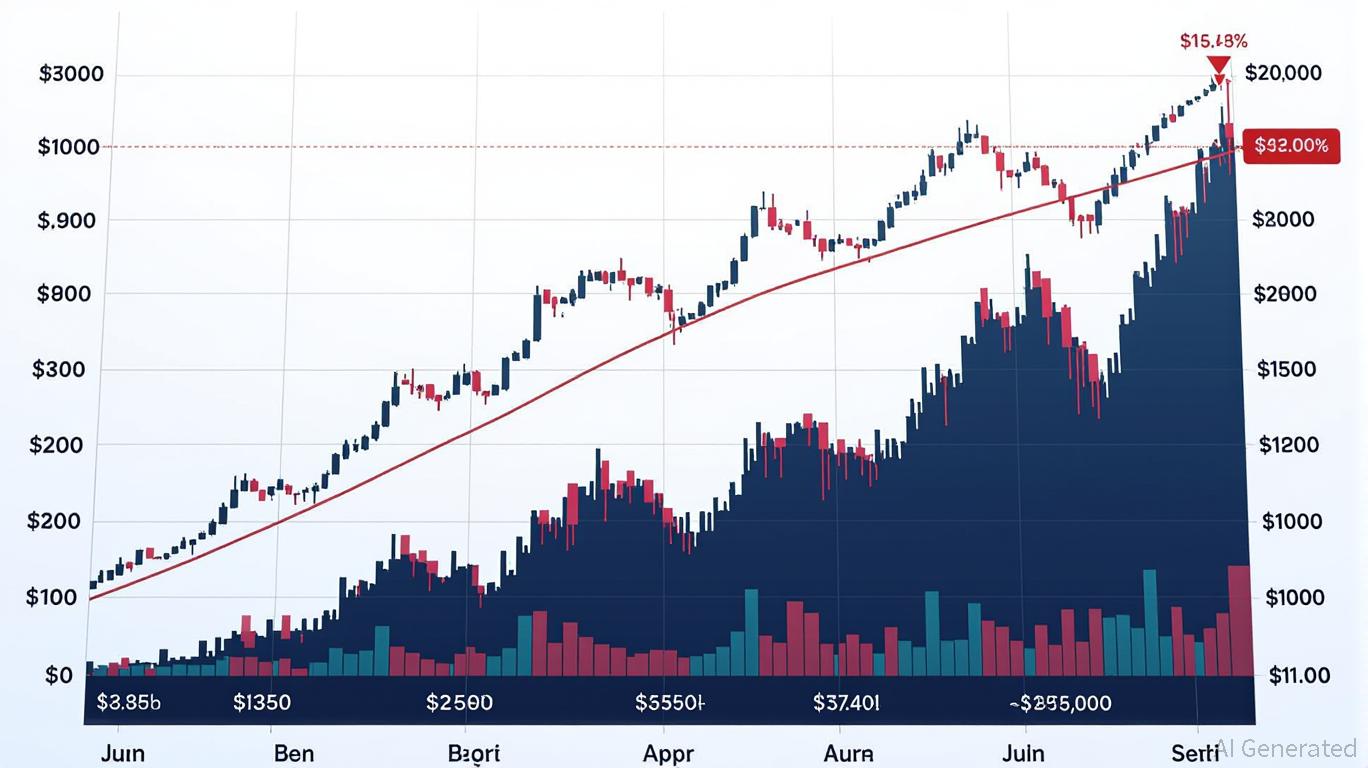North Korea's Digital Trojan Horse: Crypto Firms Infiltrated to Fund Nuclear Ambitions
- A U.S. intelligence officer warns North Korea has infiltrated 15-20% of global crypto firms to fund nuclear programs, exploiting remote workers in developing nations as intermediaries. - Pyongyang operatives use 20% earnings-sharing schemes to recruit freelancers on platforms like Upwork , installing malware to access U.S. infrastructure while evading sanctions. - The U.S. Treasury reports $3B stolen in crypto over three years, with North Korea leveraging stolen IP and embedded workers to maintain long-t
An intelligence officer from SEAL Team has disclosed that North Korean operatives have penetrated between 15% and 20% of cryptocurrency companies worldwide, a rate significantly exceeding earlier assumptions. This revelation, shared by Pablo Sabbatella, the founder of Web3 security firm opsek and a member of the Security Alliance, highlights the escalating danger posed by North Korea’s cyber-espionage activities. Sabbatella
Their methods are highly advanced. Due to global sanctions, North Korean hackers cannot apply for jobs directly, so they
The financial impact is substantial. The U.S. Treasury
Sabbatella pointed out the sector’s susceptibility, noting that many crypto founders have weak operational security (OPSEC). “Most are fully doxxed, fail to protect private keys adequately, and are easy targets for social engineering,” he stated
These disclosures come as tensions on the Korean Peninsula intensify. North Korea recently
South Korea’s newly elected President, Lee Jae Myung, is confronted with the dual task of pursuing diplomatic engagement with Pyongyang while advancing military upgrades. Although he has halted anti-North broadcasts and reopened communication lines,

The wider geopolitical environment is evolving. North Korea’s partnerships with Russia and China, which include a mutual defense agreement and troop deployments to Ukraine,
As the cryptocurrency industry contends with North Korean infiltration, these events underscore the complex links between cybercrime, international politics, and economic conflict. For South Korea, the challenge lies in balancing deterrence with dialogue, all while protecting its technological and financial systems from threats posed by both state actors and independent groups.
Disclaimer: The content of this article solely reflects the author's opinion and does not represent the platform in any capacity. This article is not intended to serve as a reference for making investment decisions.
You may also like
Bitcoin Leverage Liquidation Patterns: Managing Risk Amidst Crypto Market Volatility
- 2025 crypto liquidation events exposed leverage risks, with $2B+ daily losses from Bitcoin’s volatility and thin liquidity. - Structural flaws like over-leveraged positions and inadequate buffers worsen cascading price declines during crashes. - Panic selling and herd behavior amplified losses, as seen in Ethereum and Solana’s $239M combined liquidations. - Experts urge diversified portfolios, automated tools, and liquidity-aware strategies to mitigate leverage-driven risks.

Balancer’s $8 Million Recovery Strategy Splits DeFi: Accuracy or Backing the Community
- Balancer DAO proposes $8M recovery plan to reimburse victims of a $116M exploit via proportional BPT-based returns to affected liquidity pools. - Attack exploited a rounding function vulnerability in Stable Pools, bypassing 11 smart contract audits and draining funds through manipulated swaps. - Non-socialized distribution prioritizes precision over community-wide sharing, sparking debates about fairness and governance in DeFi recovery. - Industry experts highlight the incident as a "wake-up call," urgin
Ethereum Updates Today: Bhutan's Strategic Adoption of Ethereum: Leveraging Blockchain for National Digital Identity
- Bhutan stakes 320 ETH ($970,820) via Figment.io, adding 10 Ethereum validators to boost blockchain participation and economic resilience. - The government migrates its National Digital Identity system to Ethereum by 2026, leveraging its security for 800,000 citizens' self-sovereign identity. - Crypto reserves (6,154 BTC, 336 ETH) support the Gelephu Mindfulness City project, aiming to integrate blockchain with sustainable urban development. - Challenges include digital asset volatility and regulatory gap

The Strategic Value of Industrial Properties Amid Upstate New York’s Changing Economic Environment
- New York State's FAST NY and POWER UP programs are driving industrial real estate growth in Upstate through infrastructure grants and power-ready site upgrades. - $283M+ in grants since 2022 has transformed underutilized sites into competitive assets for semiconductors and clean-tech industries. - Corporate campus redevelopments like STAMP Park demonstrate 10%+ property value increases through public-private infrastructure partnerships. - Strategic investments align with semiconductor "superhighway" goal
